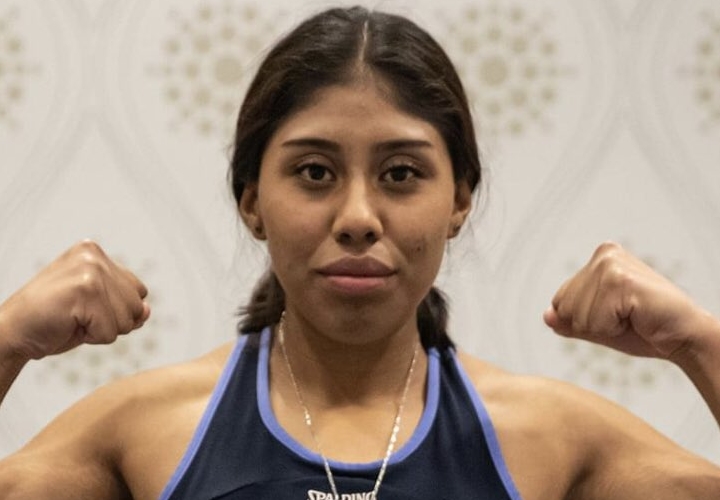Jeanette Zacarias Zapata, the 18-year-old female Mexican boxer who died of traumatic brain injuries last week after participating on a fight card in Montreal, was ready to face any fatal outcomes inside the ring and, what’s more, was apparently warned by doctors after her previous knockout loss in May that she would need surgery, according to her father.
In an article published Sunday on the Mexican website Proceso, Esteban Zapata said his deceased daughter was well attuned to the hazardous nature of her chosen sport when she went up against 31-year-old Quebec native Marie-Pier Houle on Aug. 28 at the IGA Stadium in Montreal. Zapata was stopped at the end of the fourth round but could not return to her own corner. She began convulsing on her feet and was rushed to the intensive care unit at Sacred Heart Hospital of Montreal, where she was placed under a medically induced coma. She died five days later.
Proceso reports that Zapata told her team – her father as well as her trainer and husband Jovanni Martinez, who was by Zapata’s bedside when she passed – that, “I chose this career, and if I die while boxing, then that’s how I am going to die.”
Zapata, it turns out, had fared badly in a bout three months prior to her tussle with Houle (4-0-1, 2 KOs). In May, against fellow Mexican Cynthia Lozano, Zapata was knocked out in the sixth and final round. Video of that bout shows Zapata was lying prone on the canvas for several moments after absorbing a flurry of punches, similar to the Houle fight. According to Proceso, Zapata briefly fainted. She was reportedly able to walk out of the area on her own recognizance and experienced no further symptoms. The Mexican commission subsequently suspended her for 60 days.
However, Proceso also notes that Zapata, after getting knocked out by Lozano, was informed by doctors that surgery on her brain would be required.
Recently, the Quebec government announced it would launch a public coroner’s inquest into the death of Zapata. One assumes an important aspect of the investigation will be to assess the condition of Zapata’s brain in the period between her last two bouts.
Zapata (2-4) began her professional boxing career when she was 15, in 2018. After fighting four times that year, going 2-2 (including one loss via stoppage), she did not fight again until May of the past year.
Vincent Morin, the matchmaker for GYM, the promotional company headed by Yvon Michel, which hired Zapata to fight on the Aug. 28 card in Montreal, said he would not have recruited Zapata if he had come across footage of her May fight. Morin has insisted that he could not find any video evidence of that fight at the time when he contracted Zapata for the Houle bout, though he was conscious of the fact that she had been stopped.
The trainer of Houle, Sébastien Zapata, has claimed all of Zapata’s medicals had been checked out and deemed above board by the Montreal athletic commission.
“All the medical documents were authentic,” Gauthier told The Journal of Montreal. “To be certain of the contents that were in Spanish, we had them translated by someone certified. Zapata was no longer under suspension. According to the Mexican doctors, she was in superb physical condition. Everyone followed the rules and no corners were cut. I want to make it clear that we [in Montreal] have one of the best athletic commissions in the world.”


ADD COMMENT VIEW COMMENTS (17)